
Primo Research Assistant is a generative AI-powered tool that answers natural language queries by retrieving and summarizing the descriptions/abstracts of the top five articles from library search results. It is helpful for quick searches and serves as a useful starting point for gathering initial insights on a research topic.
Key features of Primo Research Assistant:
| Intuitive Natural Language Search | Users can ask questions in everyday language, making the search process intuitive and accessible without needing Advanced Search Syntax or Boolean operators. |
| Source-Based Responses | Generates responses exclusively from cited academic sources, ensuring transparency, accuracy, and reliability. |
| Source Transparency with Citations | Provides search suggestions with inline references, enabling users to trace back to original sources. |
| Multilingual Support | Supports queries in multiple languages and draws summaries from local and English-language sources. |
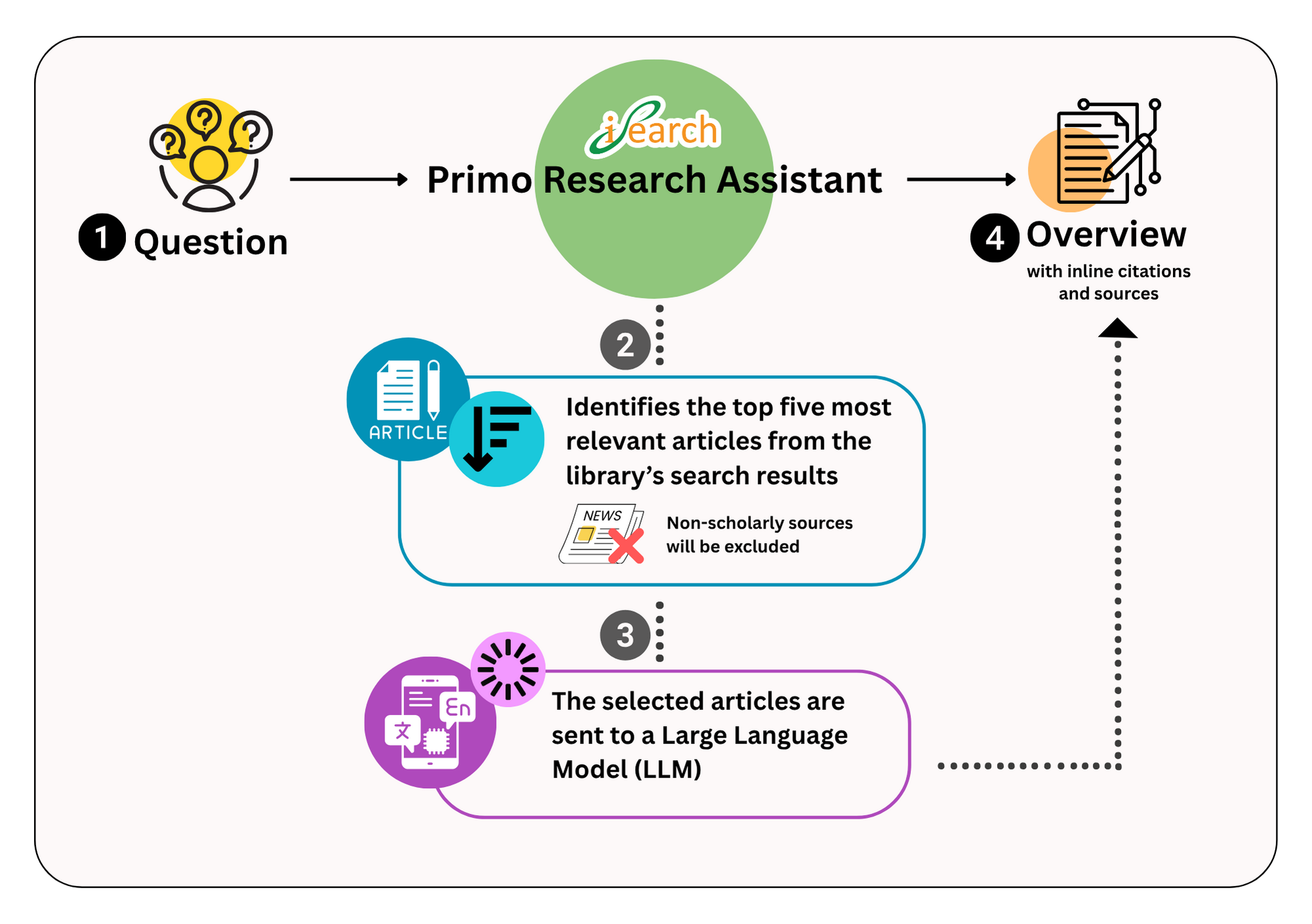
| 1 | Type in your question, Primo Research Assistant will convert it to a Boolean query through the Large Language Model (LLM) and send it to the Central Discovery Index (CDI) of the Library's iSearch. |
| 2 | After receiving the Boolean query’s results, Primo Research Assistant identifies the top five most relevant articles, excluding non-scholarly sources (e.g., newspapers, retracted documents). |
| 3 | The selected articles are sent to LLM to generate an overview. |
| 4 | You receive an overview with inline citations and sources in the response. |
You can access Primo Research Assistant in iSearch:
1. Click the "Search" icon from the iSearch box on the Library homepage.
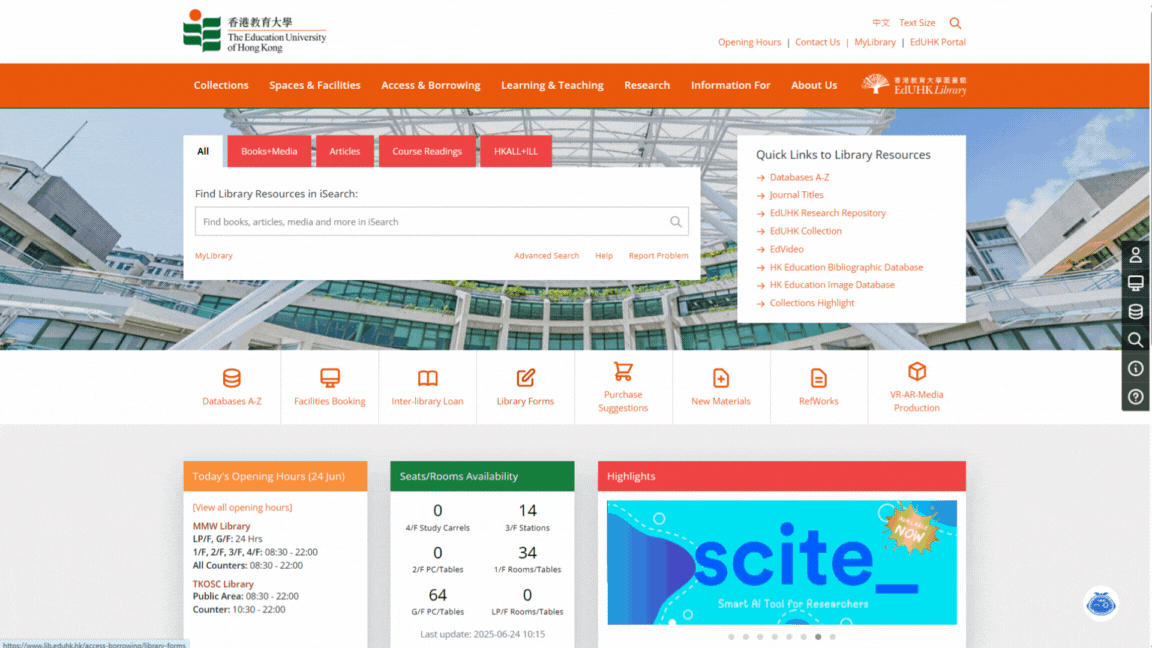
2. Click the "Research Assistant" tab at the top of the menu.
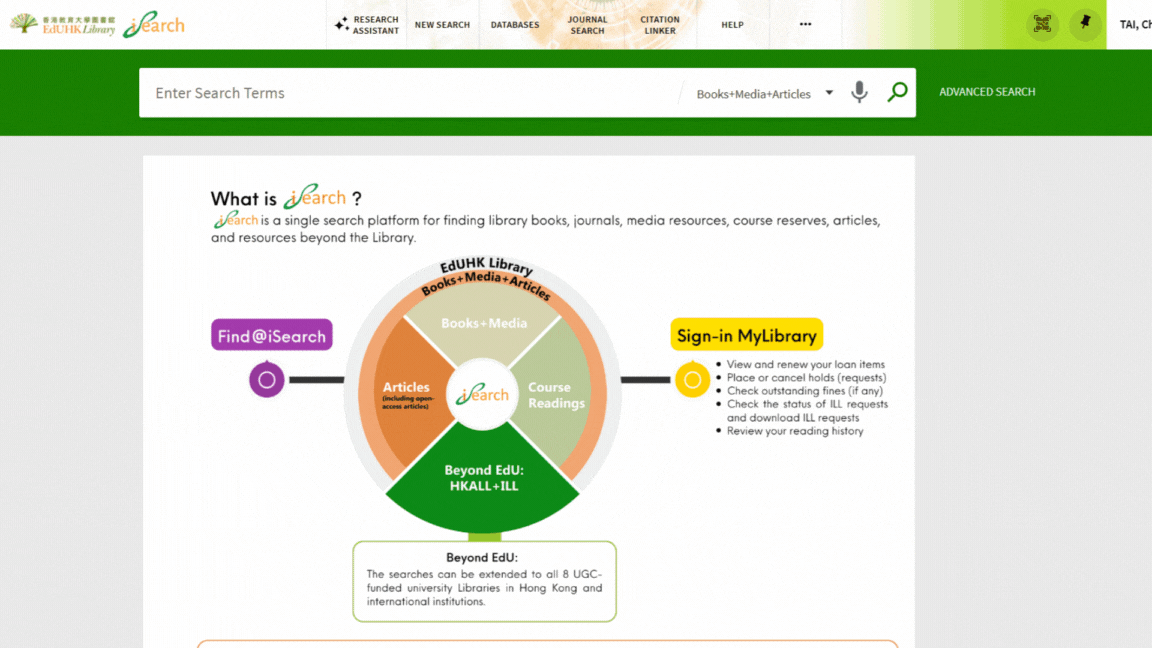
3. Log in with your EdUHK ID and password to start using it.
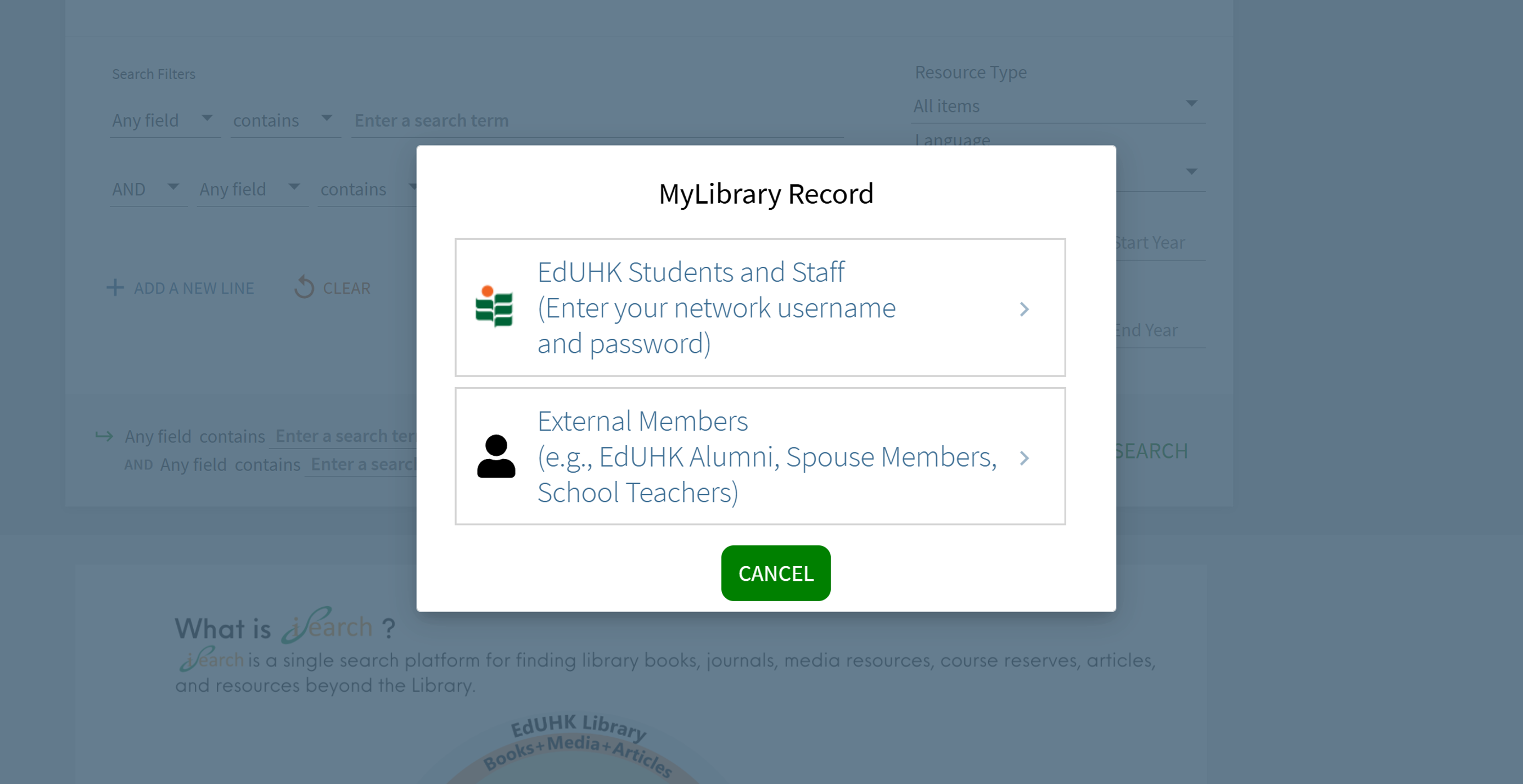
4. Enter your research question in the Primo Research Assistant.
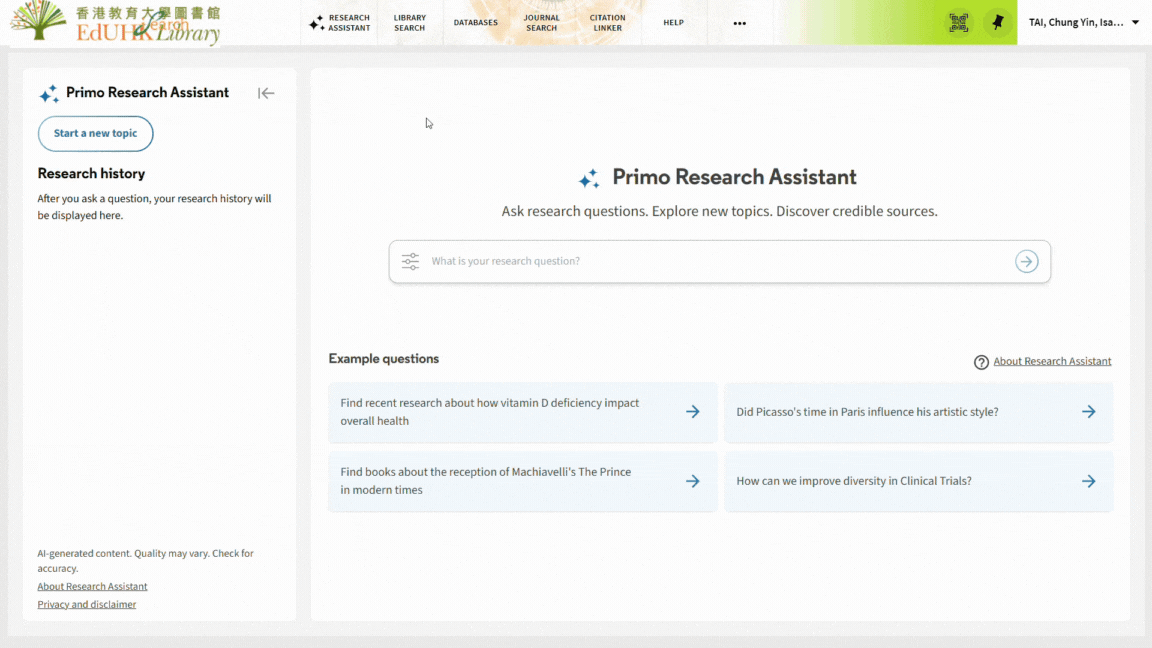
5. An overview will be generated based on your question.
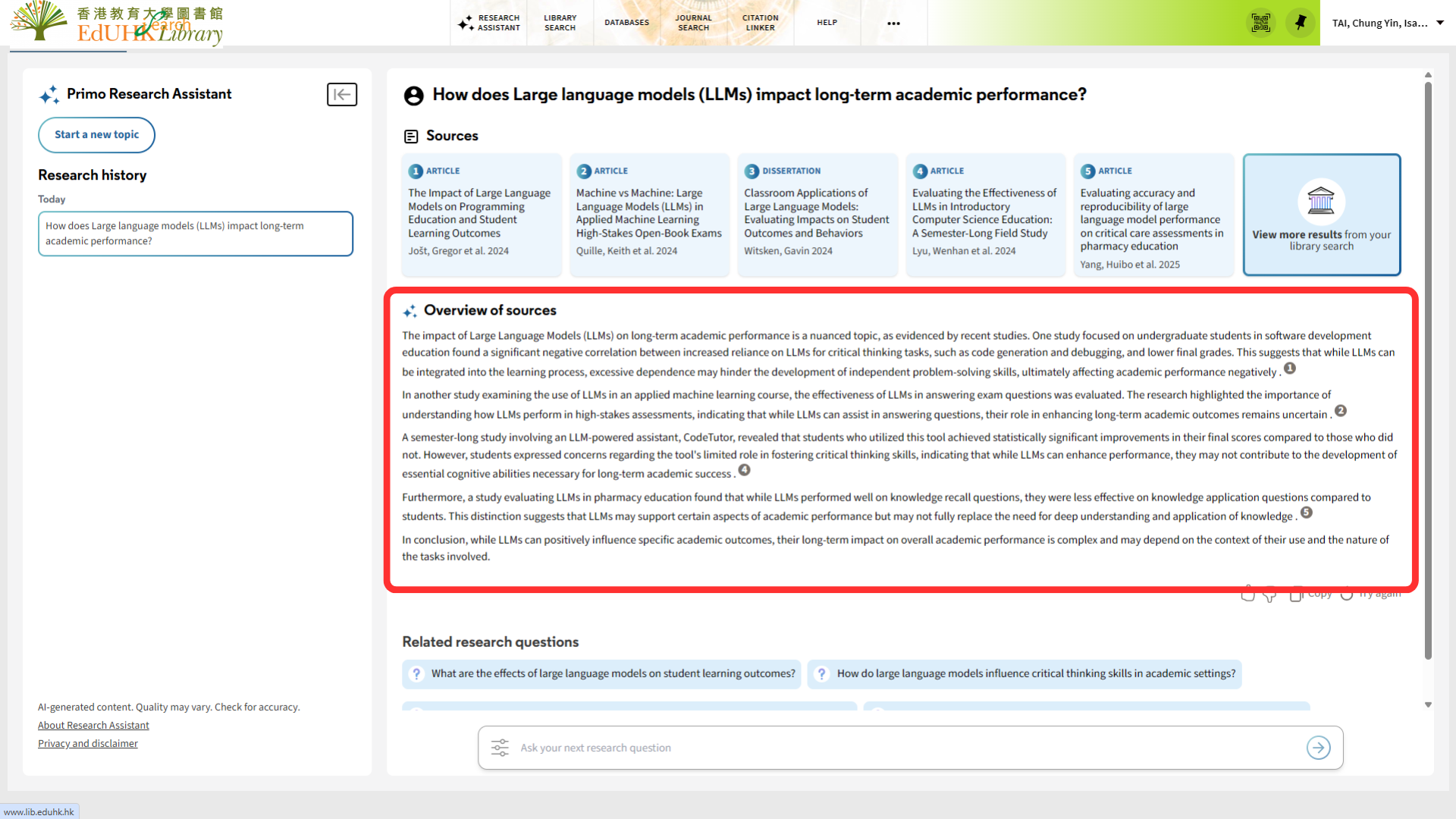
6. To view the full abstract of a selected source, click the top bar boxes. For the full original text, simply click "More Details and Request Options".
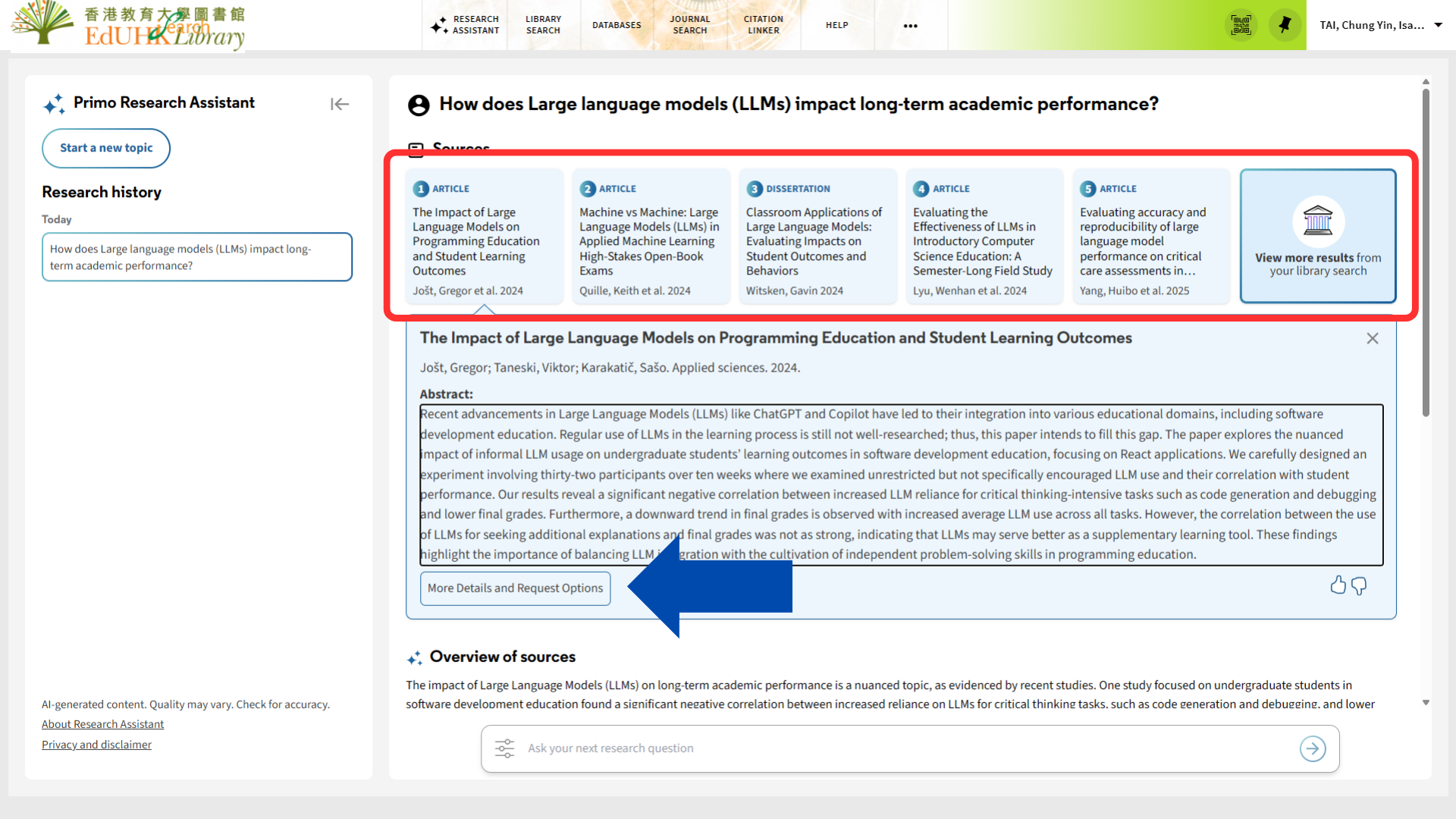
You can cite AI-generated content in APA style. For details, refer to: How to Cite AI Content in APA Style.
Primo Research Assistant focuses on scholarly content, including books, articles, and other academic materials.
It excludes non-scholarly content (e.g., news articles, retracted documents) and materials from providers like APA, DataCite, Elsevier, JSTOR, and Conde Nast.
No, Primo Research Assistant does not support follow-up questions. Please ensure your query is clear and complete before submitting it.
1. Top-ranked ≠ Most Relevant
The five top-ranked results may not necessarily be the most useful or comprehensive for your specific research topic.
2. Abstract-Only Summaries
Responses are based solely on abstracts and descriptions, which may omit critical details or misinterpret the actual content.
3. Limited Content Coverage
Searches are confined to selected online content providers, excluding print resources and potentially overlooking important materials.
4. Access Limitations
Some recommended articles may not be available through our library or may have restricted full-text access.
5. Lack of Search Continuity
Each query is handled independently, so Primo Research Assistant cannot recall or build upon previous searches like more advanced AI tools.
Please note that while the Primo AI Research Assistant can summarize and suggest resources, individuals are responsible for verifying the accuracy of the information included and should not include any personal or sensitive information.